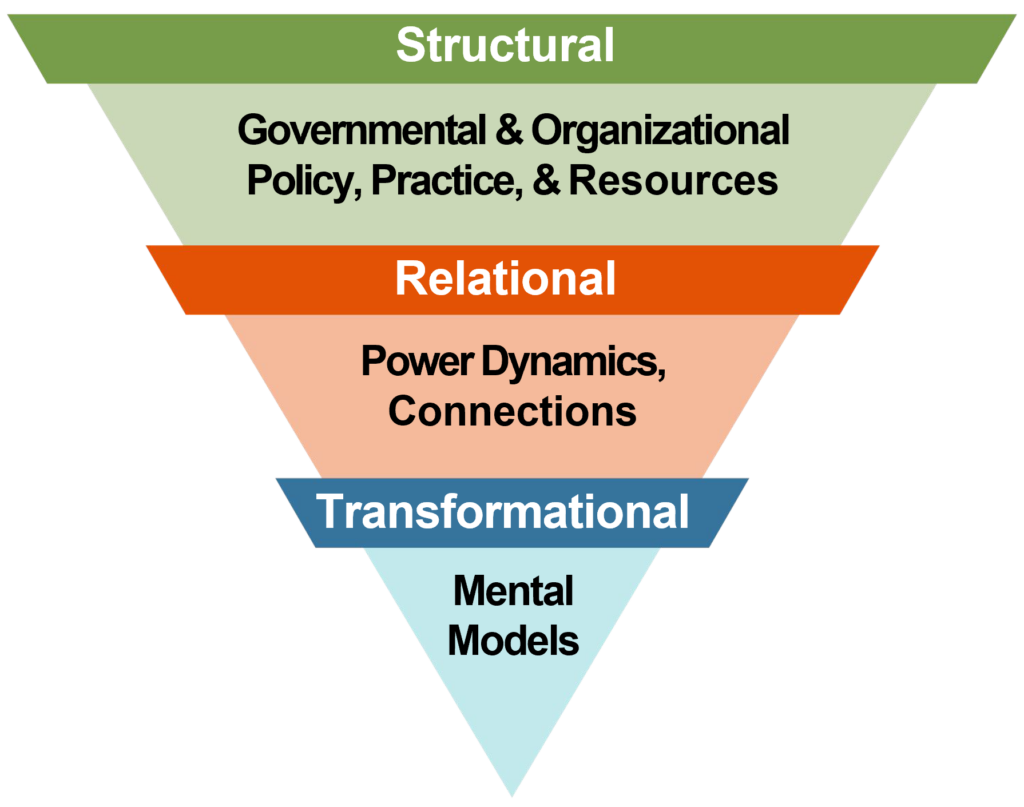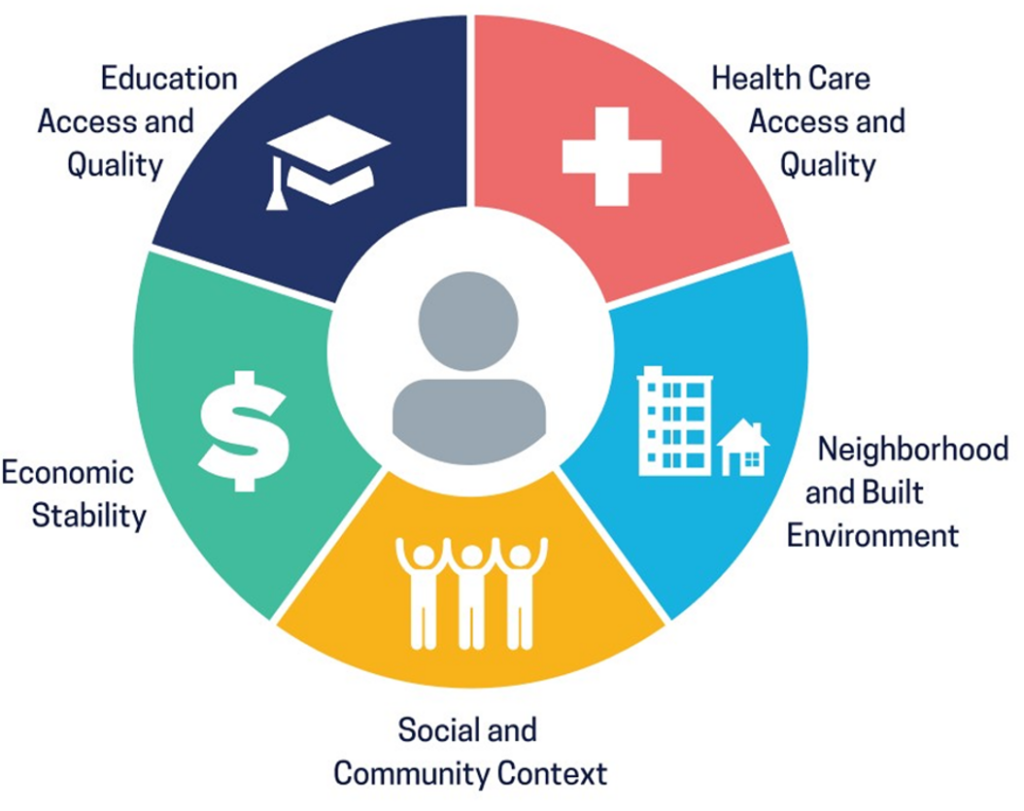Marginalized communities deserve better access to housing, childcare, education, and healthcare, and we’re making it happen by uniting nonprofit, philanthropic, and public sectors against entrenched inequities. Our strategic bi-state investments and boundary-crossing collaboration are creating — not just imagining — success in addressing social determinants of health. Equity work is challenging and messy, but we are here to provide support and coaching and create solutions that seamlessly integrate with existing plans.
Guiding Principles
We center racial equity and commitment to anti-racism.
- Individuals and communities most impacted by long-standing racial discrimination and disinvestment must be the focus of our regional transformation.
- Economic development in historically disinvested communities must be prioritized.
- We identify and change white supremacy culture in our organizations (e.g., power hoarding; either/or thinking; perfectionism) identified by anti-racism frameworks.
We partner intentionally with impacted individuals and communities.
- Impacted individuals and representatives of impacted communities are part of the decision-making process.
- We recognize and respect the strengths, assets, wisdom, and resilience in impacted communities and acknowledge the need for resources to support community-based organizations.
- We support, amplify, and credit grassroots efforts and organizations.
- We hold ourselves accountable to community partners and make meaningful changes when we fall short.
- We share our work with impacted individuals and communities broadly and transparently.
We orient towards solutions and coordinated regional action.
- We bridge the bi-state region in our activities, recognizing no single jurisdiction, sector, institution, or organization can create systemic change alone.
- We leverage the unique strengths of individual organizations to contribute to shared goals.
- We align with existing disaster responses in times of crisis.
- We act with urgency to address needs in and out of moments of crisis.
- We share our work with impacted individuals and communities broadly and transparently.
Framework for Systems Change

We approach each project through the lens of systems change. We solve problems. To achieve this, we work to change the underlying structures, customs, mindsets, power dynamics, and policies that perpetuate social challenges. We bring diverse individuals and organizations together around shared objectives, to explore innovative solutions for lasting change in local communities and beyond.
Social Determinants of Health
Social determinants of health (SDOH) are personal, social, and environmental factors influencing health outcomes. These factors can affect well-being and contribute to health disparities and inequities. By addressing SDOH, we can tackle the root causes of inequity and improve the quality of life for marginalized communities.
Examples of SDOH:
- Safe housing, transportation, and neighborhoods
- Education, job opportunities, and income
- Access to nutritious foods and physical activity opportunities
- Discrimination and violence
- Polluted air and water
- Language and literacy skills
